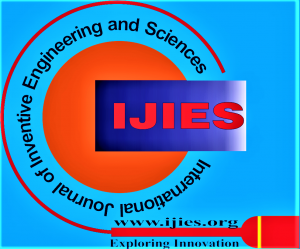![]()
Survey of Imperative and Object Oriented Quantum Computer Programming Languages
Vivek Kumar1, Anuranjan Misra2
1Mr. Vivek Kumar, M.Tech Student, Department of Electronics and Communication, Noida International University, Delhi National Capital Region Noida, India.
2Dr. Anuranjan Misra, Professor & Head, Department of Computer Science and Engineering, Noida International University, Delhi National Capital Region Noida, India.
Manuscript Received on July 11, 2015. | Revised Manuscript Received on July 24, 2015. | Manuscript published on July 20, 2015. | PP: 32-35 | Volume-3 Issue-9, August 2015. | Retrieval Number: I0663083915/2015©BEIESP
Open Access | Ethics and Policies | Cite
© The Authors. Blue Eyes Intelligence Engineering and Sciences Publication (BEIESP). This is an open access article under the CC BY-NC-ND license (http://creativecommons.org/licenses/by-nc-nd/4.0/)
Abstract: In the academic world a variety of languages are studied and used. But with the exception of a few applications, most languages utilized for commercial applications are written in imperative and object oriented languages. A partial list of these languages includes many that would be familiar to any commercial developer: Visual Basic, C#, Java, Python, Fortran, Cobol, and so on. For the power of a quantum computer to be utilized economically in commercial applications, the programming must be easy for existing commercial developers to learn and utilize. This is best done by piggy backing off of the languages and techniques they are already familiar with- this means that successful quantum languages for existing commercial developers will likely be related to one of more of these languages, or quantum frameworks (libraries) for these languages. It should be pointed out that the popularity of languages changes with time, so as new languages come into popularity their potential for quantum computing also needs to be kept in mind. Many of today’s popular languages were not designed to easily take advantages of multiple cores or processors. Consequently it is quite feasible that other languages that take advantage of these parallel processing capabilities will rise in popularity in the near future and be excellent candidates extending to carry out quantum computing.
Keywords: C#, Java, Python, Fortran, Cobol, Visual Basic, libraries
